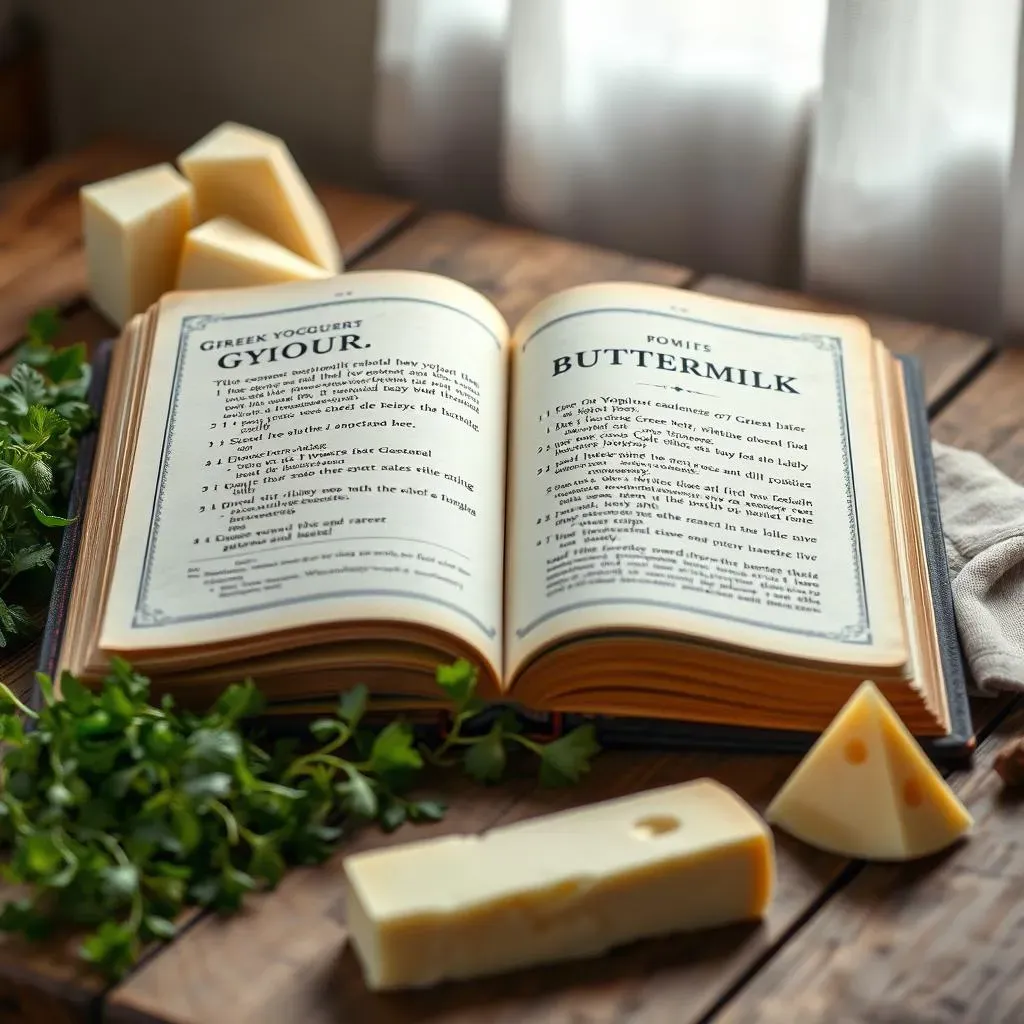Table of Contents
Ever stared blankly at a recipe, realizing you're missing a key ingredient – sour cream? And then, you spot a tub of cream cheese in the fridge. The burning question arises: "Can I substitute sour cream with cream cheese?" This article is your definitive guide to answering that very question. We'll explore the crucial differences between these two dairy delights, revealing when a swap is a smart move and when it's a recipe disaster waiting to happen. We'll dive into the specifics of texture, taste, and fat content, showing you exactly what to expect when you make the switch. But don't worry, we're not stopping there! If cream cheese isn't the answer, we'll uncover a range of alternative substitutes for sour cream, equipping you with the knowledge to tackle any recipe challenge. Finally, we'll provide practical tips and recipe adjustments to ensure your culinary creations remain delicious, even with unexpected ingredient swaps. Get ready to become a sour cream substitution superhero! Let's get started!
Understanding Sour Cream and Cream Cheese: Key Differences

Understanding Sour Cream and Cream Cheese: Key Differences
Texture and Consistency
Let's talk texture! Sour cream boasts a smooth, creamy consistency, almost like a thick yogurt. It's wonderfully spoonable and spreads easily. Think of it as the cool, relaxed cousin of the dairy family. Cream cheese, on the other hand, is denser and firmer. It's more spreadable than, say, cheddar, but not as fluid as sour cream. You can definitely tell the difference between the two!
Think of making tacos. Sour cream's loose consistency makes it a perfect topping, easily drizzled or dolloped. Cream cheese? Not so much. It's more likely to clump and slide off your taco, which is a tragedy for any taco enthusiast. For a more in-depth look at sour cream substitutes, check out our guide on substituting sour cream for Greek yogurt in baking.
Feature | Sour Cream | Cream Cheese |
|---|---|---|
Consistency | Smooth, creamy, pourable | Denser, firmer, spreadable |
Texture | Fluid | Solid |
Taste and Acidity
Now, let's talk taste. Sour cream, as its name suggests, has a distinctly tangy flavor. This sourness comes from the lactic acid bacteria used in its production. It's a bright, refreshing flavor that complements many dishes. Cream cheese, however, is milder. It has a subtle tang, but it's much less pronounced than sour cream's zesty punch. For those looking for a healthier option, you might want to explore substituting cottage cheese for sour cream.
Imagine a potato salad. The tangy sour cream brightens the flavors, cutting through the richness of the potatoes and mayonnaise. Cream cheese in the same recipe would result in a dish that's noticeably less acidic and more, well, creamy. It's a different experience entirely. If you're curious about other creamy options, our guide on substituting heavy cream for sour cream is a great place to start.
- Sour cream: Tangy, acidic
- Cream cheese: Mildly tangy, creamy
Fat Content and Calories
Finally, let's consider the nutritional aspects. Both sour cream and cream cheese are relatively high in fat and calories. However, the exact amounts vary depending on the brand and type (full-fat vs. low-fat). Generally, cream cheese tends to be slightly higher in fat than sour cream. This difference in fat content can significantly impact the final product. If you're watching your calorie intake, you might want to check out our article on substituting almond milk for sour cream for healthier alternatives.
Think about a cheesecake. The richness of cream cheese contributes significantly to its texture and mouthfeel. Using sour cream instead would likely result in a lighter, less dense, and potentially more acidic cheesecake. It's a trade-off you’d need to consider. For other baking substitutions, see our ultimate guide on substituting sour cream for Greek yogurt in baking.
Cream Cheese as a Sour Cream Substitute: When it Works and When it Doesn't

Cream Cheese as a Sour Cream Substitute: When it Works and When it Doesn't
Baking: A Surprisingly Good Fit
Surprisingly, cream cheese can sometimes be a decent sour cream substitute in baking. The higher fat content in cream cheese contributes to a richer, denser texture in baked goods. This can be a plus in recipes like muffins or cakes where a moist, decadent crumb is desired. The slightly milder flavor of cream cheese won't overpower other ingredients, making it a relatively neutral player in the baking game. However, remember that cream cheese lacks the characteristic tang of sour cream, so you might lose that bright, acidic note. For a deeper dive into baking substitutions, check out our guide on sour cream substitutes for baking.
Consider a recipe for carrot cake. Cream cheese frosting is a classic pairing, isn’t it? But what if the cake itself calls for sour cream? Swapping in cream cheese might result in a slightly less tangy, but still delicious, cake. The denser texture from the cream cheese could even be considered a positive in this context, offering a richer mouthfeel. For more options, explore our article on sour cream for buttermilk in baking.
- Cakes and muffins: Cream cheese can add richness and moisture.
- Cookies: May slightly alter texture and flavor.
- Quick Breads: Experiment cautiously, as results can vary.
Savory Dishes: Proceed with Caution
In savory dishes, the substitution becomes trickier. Cream cheese's denser consistency and milder flavor don't always translate well. Its lack of acidity can make sauces and dips feel flat, lacking the bright, tangy notes that sour cream provides. In dishes where sour cream plays a crucial role in balancing flavors or providing a specific texture, cream cheese is often not a good fit. For instance, in a creamy tomato soup, sour cream adds a delightful tang and a subtle creaminess. Cream cheese would likely make the soup overly rich and lack the necessary acidity to balance the tomatoes.
Think about a classic chili. Sour cream is often used as a topping to add a cool, tangy contrast to the spicy chili. Substituting cream cheese would result in a topping that's much less flavorful and could even be a bit overwhelming in its richness. The cream cheese's texture would also be quite different, likely clumping on top of the chili rather than blending smoothly. If you're looking for alternative options for savory dishes, you might find our guide on substituting cottage cheese for sour cream helpful.
Dish Type | Suitable for Cream Cheese? | Why? |
|---|---|---|
Cakes | Yes (often) | Adds richness and moisture |
Soups | No | Lacks acidity and can be too heavy |
Dips | No | Lacks the tang and desired texture |
Exploring Alternatives: Beyond Cream Cheese and Sour Cream

Exploring Alternatives: Beyond Cream Cheese and Sour Cream
Greek Yogurt: A Tangy Twin
Let's talk about Greek yogurt! It's a fantastic sour cream stand-in, especially in savory dishes. Its thickness and tangy flavor profile closely mimic sour cream, making it a versatile choice. The higher protein content is a bonus for health-conscious cooks. However, the flavor can be slightly more tart than sour cream, so you might need to adjust seasonings accordingly. For a deeper dive into Greek yogurt's versatility, check out our guide on Greek yogurt as a sour cream substitute.
Think of a tzatziki sauce. Greek yogurt forms the base, providing that creamy texture and tangy kick. Sour cream would work too, but Greek yogurt’s thickness often makes it a preferable choice. If you are making dips or sauces, you may find our article on substituting sour cream for mayonnaise useful in understanding similar textures.
- Great for dips and sauces
- Adds protein to dishes
- Can be slightly tarter than sour cream
Buttermilk: A Surprisingly Good Option
Buttermilk is another excellent alternative, particularly for baking. Its slightly acidic nature and thinner consistency than sour cream can work well in cakes, muffins, and quick breads. It adds moisture and a subtle tang, complementing many sweet and savory recipes. Remember, buttermilk is more liquid than sour cream, so you may need to adjust other liquid ingredients in your recipe to compensate for the difference. For a detailed look at buttermilk substitutions, check out our guide on sour cream for buttermilk in baking.
Picture this: you're baking cornbread. Sour cream adds a lovely moistness and slight tang. Buttermilk can accomplish much the same thing. It might yield a slightly different texture, but the flavor profile will remain remarkably similar. For more information on other milk substitutes, see our article on sour cream for milk in cornbread.
Substitute | Best Use | Considerations |
|---|---|---|
Greek Yogurt | Savory dishes, dips | Tartness may need adjusting |
Buttermilk | Baking | Adjust liquid ingredients |
Recipe Adjustments for Successful Substitutions

Recipe Adjustments for Successful Substitutions
Adjusting for Texture
The biggest difference between sour cream and cream cheese lies in their texture. Sour cream is fluid and pourable, while cream cheese is much denser. When substituting, consider how this difference might affect the final dish. If you’re replacing sour cream with cream cheese in a sauce or dip, you might need to add a little extra liquid (milk or broth) to thin it out and achieve the desired consistency. For baking, the denser cream cheese might result in a richer, moister product, but you may need to reduce other liquids slightly to prevent the batter from becoming too wet. If you're unsure about the right amount of liquid, start by adding a small amount at a time and mix well before adding more. For other thickness adjustments, you might find our guide on half-and-half for sour cream helpful.
Let's say you're making a creamy pasta sauce. Sour cream provides a light, almost airy creaminess. Cream cheese, on the other hand, will create a heavier sauce. To compensate, you'll likely need to add some milk or even a touch of pasta water to thin it out and prevent it from being too thick and clumpy. If you're substituting in a baked good, like a cake, you may find that a little less liquid is needed to prevent the batter from being too wet, as cream cheese already lends moisture. For cakes specifically, you might be interested in our guide on heavy cream for sour cream in cheesecake.
- Add liquid (milk, broth, or pasta water) to thin cream cheese-based sauces or dips.
- Reduce liquid ingredients slightly when substituting cream cheese in baking.
- Start with small additions of liquid and mix well before adding more.
Balancing the Flavor Profile
Sour cream's tangy flavor is a key element in many recipes. Cream cheese, being milder, may leave your dish lacking that bright, acidic note. To compensate, you might consider adding a squeeze of lemon juice or a splash of white vinegar to mimic the sour cream's acidity. The amount you'll need will depend on the recipe and your personal preference. Start with a small amount and taste as you go, adding more until you achieve the desired level of tartness. Remember to taste test frequently to avoid making it too sour. For other flavor balancing techniques, you might find our guide on sour cream for applesauce useful, as applesauce often involves similar flavor adjustments.
Consider a creamy potato salad. The sour cream not only adds creaminess but also a pleasant tang that cuts through the richness of the potatoes and mayonnaise. If you replace it with cream cheese, that tang is lost. A simple solution is to add a tablespoon or two of lemon juice or white wine vinegar to the cream cheese mixture. This will boost the acidity and bring back that familiar bright flavor. For more information on other creamy alternatives, you might find our guide on heavy cream for sour cream helpful.
Ingredient | Amount | Effect |
|---|---|---|
Lemon Juice | 1-2 tbsp | Adds tartness |
White Vinegar | 1-2 tsp | Adds tartness |
Considering Fat Content
Cream cheese is typically higher in fat than sour cream. This can impact the overall richness and texture of your dish. If you're using cream cheese as a substitute, be mindful of the increased fat content. You might need to adjust other ingredients to compensate, such as reducing the amount of oil or butter in the recipe. This is especially important in baking, where excess fat can lead to a dense, heavy product. In savory dishes, the increased richness might not be a problem, but it’s something to keep in mind. For a healthy alternative, you might want to check out our article on almond milk for sour cream.
Imagine you're making a creamy chicken casserole. Sour cream adds a nice creaminess without being overly heavy. Cream cheese, with its higher fat content, will create a much richer dish. To balance this, you could reduce the amount of butter or oil you're using in the recipe. You could even try using a lower-fat cream cheese or opting for a Greek yogurt substitute instead for a healthier option. For other healthy alternatives, check out our guide on cottage cheese for sour cream.